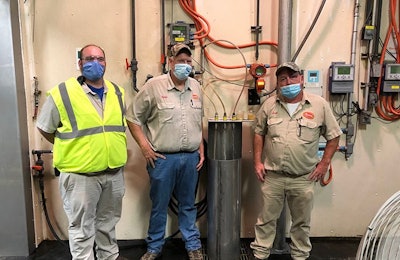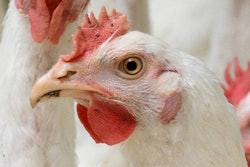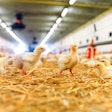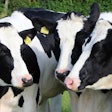
Tyson Foods Inc.’s Berryville, Arkansas, operation successfully handles a challenging wastewater stream.
As part of the 2020 U.S. Poultry & Egg Association’s Clean Water Awards, Tyson’s facility in Berryville, received an honorable mention with distinction award in the pretreatment category.
The pretreatment category covers facilities that discharge pretreated effluent to a publicly owned, full treatment facility for further treatment. To be eligible, a facility must have a minimum of two years of no significant non-compliances or notices of violations or any other type of enforcement action. Judging is based upon training, unique processes utilized for treatment, community outreach, wildlife management, water conservation and general environmental stewardship.
Water pretreatment
The pretreatment facility at Tyson’s Berryville operation handles 750,000 gallons of wastewater daily generated from its daily further processing of 716,000 pounds of meat. The plant handles broilers, by-products and further processing and includes a cooking operation which creates unique demands for water treatment.
Water is pretreated using two dissolved air floatation (DAF) units and processes specially designed to remove both soluble and insoluble contaminants. Its waste stream includes marinades, glazes, breading and batter which creates a high biological oxygen demand (BOD) load so it must rely heavily on the biological removal of soluble contaminants to meet its permit requirements.
The facility utilizes special methods to achieve its mission. It employs automated chemical feed and automated carbon dioxide dosing to improve wastewater pretreatment efficiency. It also uses marinade recovery and pressure filtering to reduce the contaminants entering the pretreatment system.
Water conservation and environmental stewardship
The Berryville operation is taking steps to reduce its water usage, too. Along with not using water on breaks, changing its cleaning procedures to reduce water usage and constantly assessing the plant for water inefficiency, it is committed to purchasing new systems that reduce water demand in processing.
Moreover, the facility has employed its own recycling program – including cardboard, oil filters, used batteries, wood pallets, scrap metal and offal material – that has diverted 50,000 tons of waste from its local landfill. The facility recycled 70% of its solid waste in the most recent year of its recycling program and now hosts one of the largest cardboard recycling programs in all of Tyson’s poultry division.


















